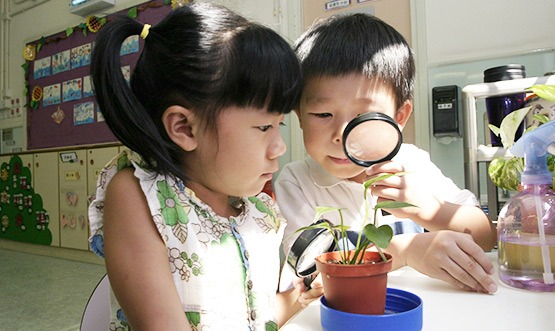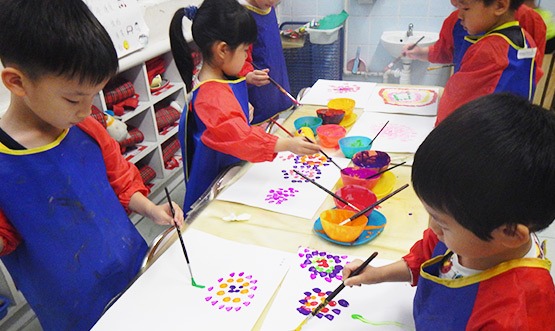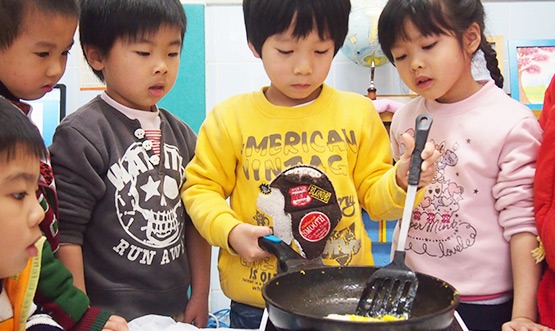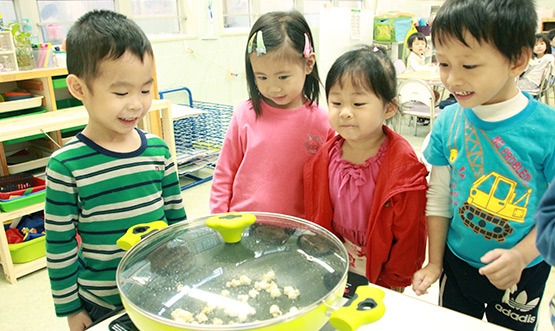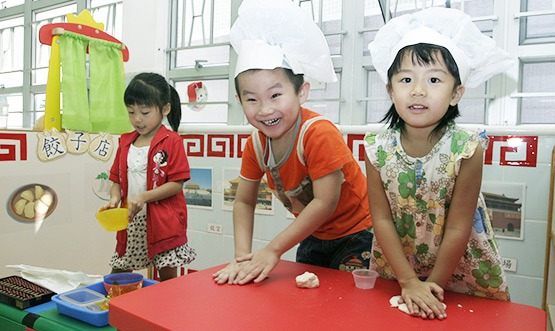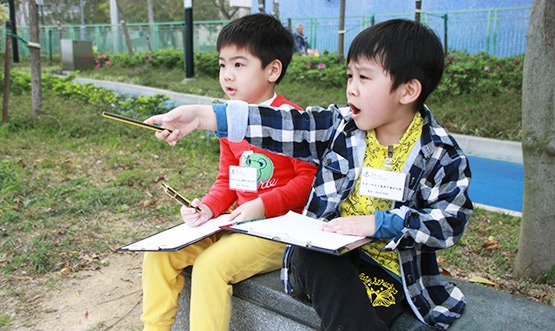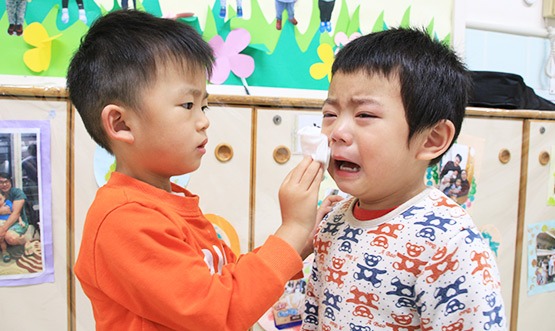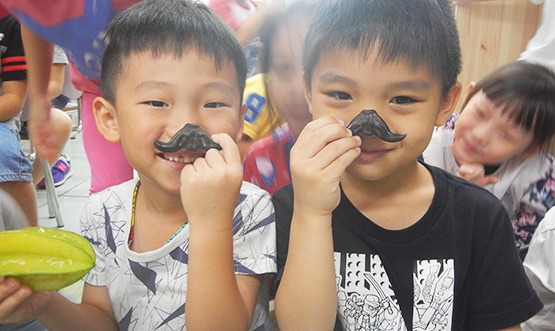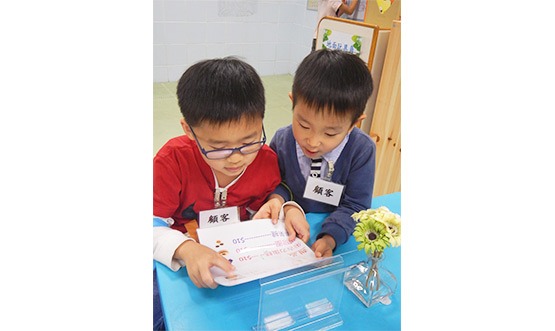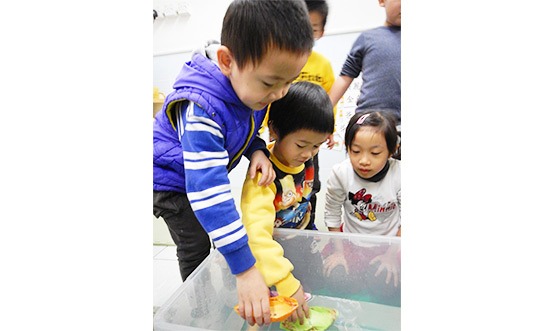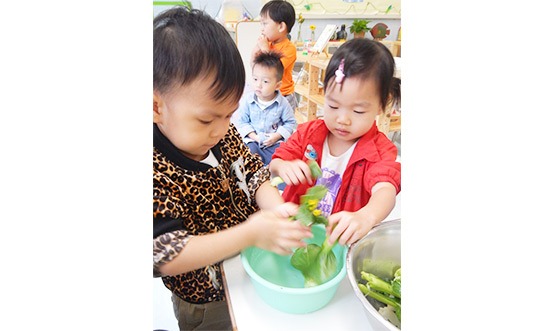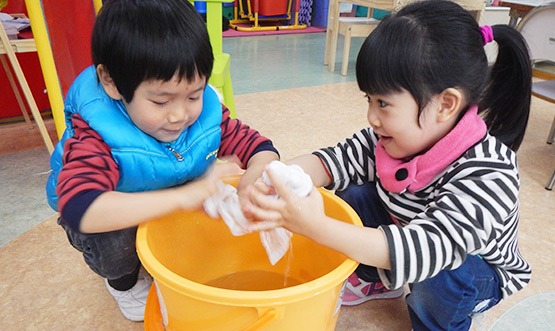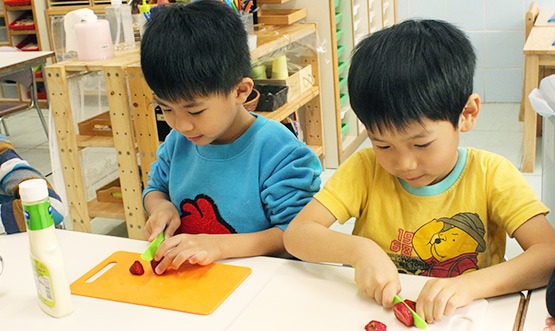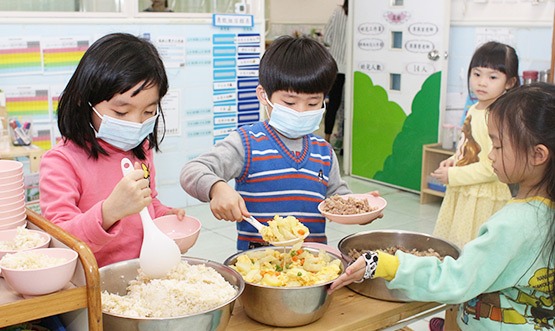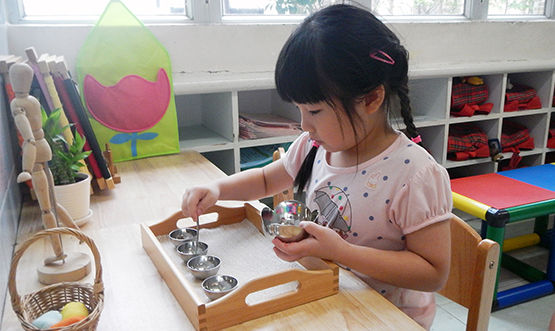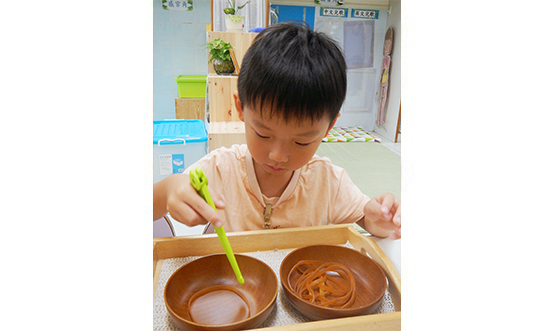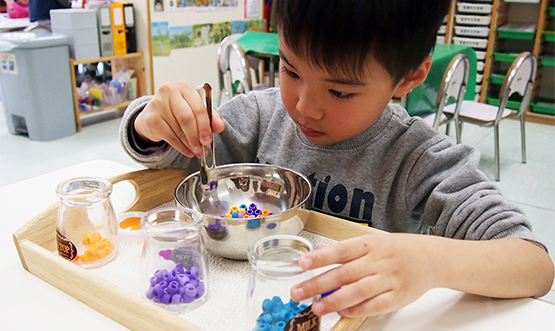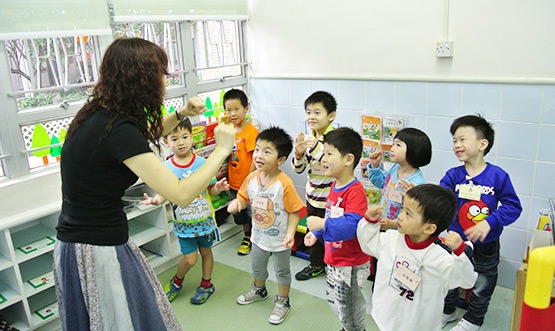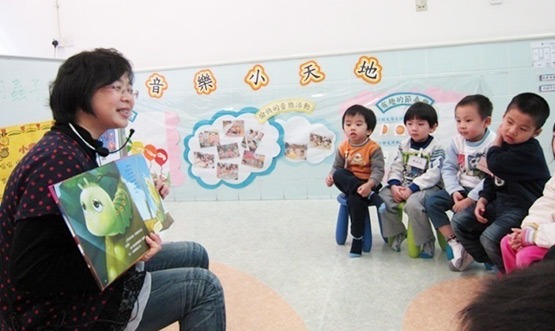Curriculum Features
Curriculum Introduction
By centering children's learning around the use of stories, with relation to the theme of daily living and supplemented by Whole Language, and project work, the school focuses on children's life experiences and interests, and uses a series of diverse exploration activities and play to help children establish and develop their motivation, interest and ability to learn.
Curriculum objectives
- To help children actively explore and establish learning skills.
- To promote children's self-esteem and self-confidence, and establish the required skills and attitude to get along well with others.
- To help children establish healthy life habits, develop body coordination and have a strong and healthy body.
- Children are able to appreciate beautiful things and things that they are touched by, and they can learn to express their feelings via a range of different mediums, such as art activities.
Curriculum Features
- Through play and diverse activities, children's interest in learning and their ability to think are nurtured. With the core value of the curriculum as "child-centeredness", thematic stories, project work, and whole language pedagogy are strategies for improving the children's potentials for self-initiated learning, to achieve balanced development in moral intelligence, physical health, social interaction, and aesthetics.
- Chinese and English storybooks are used to integrate all of the children's learning and development areas, and to develop children's listening, speaking, reading and writing skills through systematic and diverse activities.
- In order to enrich children's diverse life experiences, different forms of outdoor activities are regularly arranged, such as: weekly walks, shopping trips, tours, and parent-child trips or excursions.
Emotion Education
When children are in new environment and encountering new people, the thing that they need most is a sense of security, and it is also the first condition needed for them to be able to devote themselves to school life and study. Therefore, this school places great importance on emotional education. Teachers effortlessly integrate emotional education in their daily routines, enabling students to learn to differentiate between different emotions and expressions of their feelings. Teachers also use positive emotions as a motivating tool for children to be in a happy and stable mood and to establish a positive self-image. Children are then able to grow up in an environment that provides security and love, enabling them to develop healthily in body and mind.
- This school integrates emotional education into daily activities and life situations, guiding children to identify and take in different emotions and correctly express their own emotions.
- Provides "Growing with Self-Esteem and Self-Confidence", a parent education project to help parents establish a correct attitude and learn effective methods while educating their children, thereby promoting parent-child relationships and improving children's self-esteem and self-confidence.
- Through parent-child activities, seminars for parents and group tutorials, the program further provides parenting support.
Whole Language Approach
"Whole language approach" brings all elements of language to the forefront, by allowing children to be exposed to a wider vocabulary in their daily life and using the strategy of daily story time so that children can gain an interest in language. Children are able to build a network of meanings between common words thereby consolidating their foundation and memory for literacy.
Chinese Culture School-based Learning Activities
The Project Approach
The "Project Approach" is an in-depth exploration of a topic, allowing the topic to be covered deeply and extensively. The objective is to develop children's ability to work independently and confidently when studying and exploring. There is no set form or scale for this approach. It may be carried out by the class as a whole, small groups, or even individually, depending on the interest and ability of the child. The planned network of the "Project Approach" is multi-level and connected. An appropriate "Project Approach" allows children to suggest project topics, make assumptions, search for information, report conclusions and share their findings, from which they can experience the processes and strategies involved in constructing knowledge.
Sensory Motor Activities
Through life skills training, games and activities, the school helps to enhance children's sensory recognition skills, strengthen muscular endurance, improve stability of the arm and wrist, improve finger flexibility, and improve eye-hand coordination, etc., thereby consolidate the foundation for future reading, writing and learning.
To this end, the Tung Wah Group of Hospitals has launched a series of "Sensory Motor Parent-child Play". As part of the training schedule, children are required to master basic skills before they begin reading and writing. These games also promote skills in language learning and overall development.
Practical Life Skills Training
Since the introduction of the Montessori philosophy in 2011, Nursery School optimized the school environment to strengthen children's life skills training. The training allows children to have their own time and opportunities to learn how to take care of themselves and the environment. Through these experiences, children are able to learn, create a sense of order, and improve their coordination skills. When children are able to independently carry out tasks, it allows them to maintain encoional stability and improves their concentration skills.
Enhancement Programme
Language Enrichment Activities
The Nursery School arranges various types of enrichment activities, including: English interest activities, Mandarin interest activities, providing children with different language experiences and increasing their interest and ability to understand and speak foreign languages.
Learning Resource Bank
Parent Sharing
(Chinese version only)

